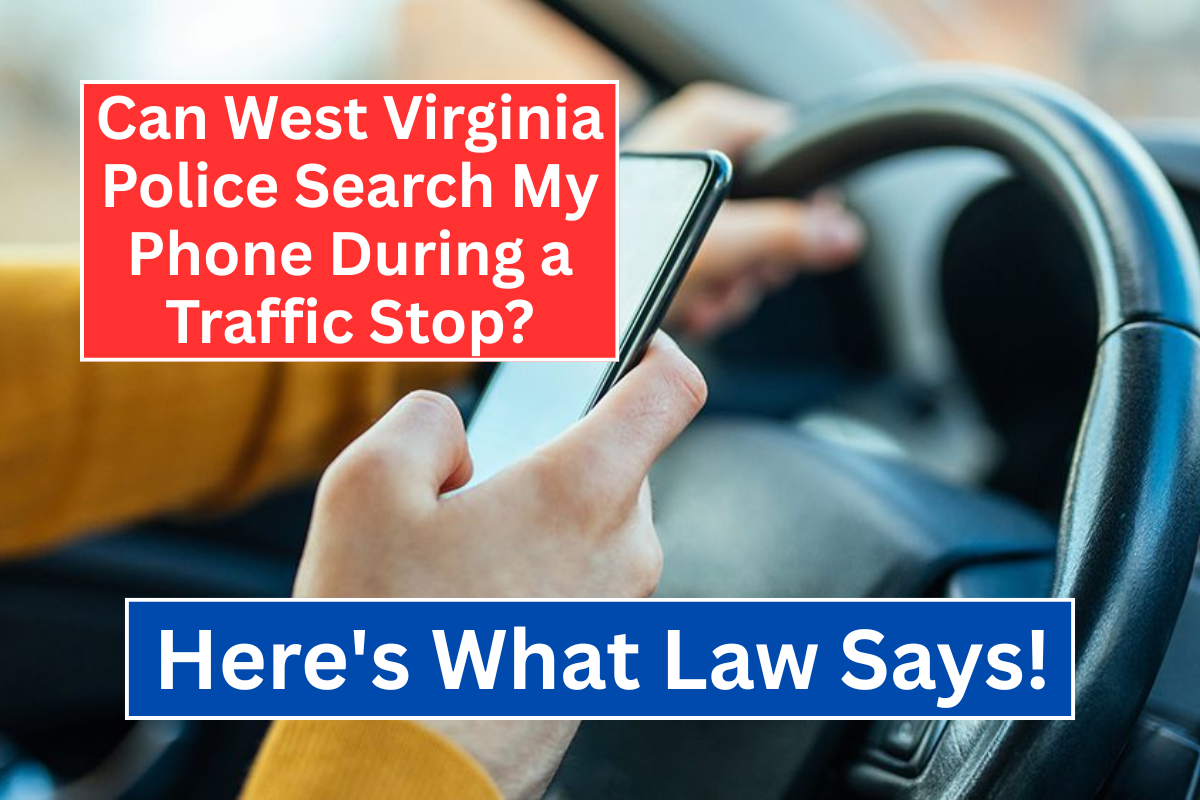Smartphones have become an essential part of our daily lives, holding a vast amount of personal information such as texts, photos, and even access to bank accounts.
But what happens if you’re stopped by a police officer during a traffic stop in West Virginia, and they want to search your phone?
Do they have the right to do so? Here’s what you need to know about the laws surrounding phone searches during traffic stops in West Virginia.
The Fourth Amendment and Search Rights
The Fourth Amendment of the U.S. Constitution protects citizens from unreasonable searches and seizures. This means that police officers generally cannot search your personal property, including your phone, without a warrant or probable cause.
In the context of a traffic stop in West Virginia, this protection applies to searches of both your vehicle and your phone.
When you interact with law enforcement, you have the right to refuse consent for a search of your person, your car, or your phone. You also have the right to remain silent and not answer questions.
In fact, if you are asked by an officer to unlock your phone, you are not required to comply unless the officer has a warrant or a valid reason to conduct the search.
Riley v. California: The Supreme Court Ruling on Smartphone Searches
In 2014, the U.S. Supreme Court ruled in Riley v. California that police cannot search a smartphone without a warrant. This landmark decision reinforced that a phone’s contents are protected under the Fourth Amendment, as they contain a wealth of personal information.
Simply put, police cannot search your phone during a traffic stop unless they have a warrant.
Even if your phone is seized by the police, they cannot access its contents without obtaining a separate warrant. The Riley v. California ruling made it clear that a warrant is necessary to search the data on a phone, even if it is taken during an arrest.
Are There Exceptions to the Rule?
While the general rule is that police need a warrant to search your phone, there are a few important exceptions:
- Consent: If you voluntarily give police permission to search your phone, they do not need a warrant. However, you are not required to consent to a search. If you refuse, the police cannot force you to allow them to search your phone without a warrant.
- Immediate Threat or Danger: In some cases, police can access the contents of a phone without a warrant if there’s an imminent threat or emergency situation, such as if the phone contains information that could prevent immediate harm. This exception, however, is very limited and depends on the circumstances.
- Unlocking with Fingerprint or Facial Recognition: While police cannot force you to unlock your phone voluntarily using fingerprint or facial recognition under current Supreme Court precedent, they can obtain a warrant specifically authorizing the forced use of biometric data (e.g., fingerprint or facial recognition) to access your phone. This means that while officers cannot demand you unlock your phone on the spot, they can request a warrant to compel the use of biometric access if they have legal grounds for it.
Can Police Search Your Phone During a Traffic Stop in West Virginia?
In West Virginia, as in the rest of the U.S., police officers cannot search your phone during a traffic stop unless they have probable cause or a warrant. The act of simply pulling you over for a traffic violation does not give officers the authority to search your phone.
However, if they believe there is evidence of a crime on your phone or they have probable cause, they may try to seize the phone. But again, without a warrant, they cannot access the phone’s contents.
What Should You Do if an Officer Wants to Search Your Phone?
If a West Virginia police officer asks to search your phone, you have the right to refuse. You can politely say something like, “I do not consent to a search of my phone.”
If the officer tries to search your phone without your consent, you should remain calm and avoid resisting. You can also ask if they have a warrant for the search, and if they do not, you are within your rights to deny permission.
Consequences of Unlawful Searches
If police search your phone without a warrant or valid consent, the evidence they gather could potentially be inadmissible in court. If you believe your rights were violated, you may be able to challenge the evidence in court and possibly have the case dismissed.
It is important to be aware of your rights and consult with an attorney if you feel your constitutional rights were violated.
In West Virginia, police cannot search your phone during a traffic stop unless they have a warrant or specific, lawful consent. While police officers have certain rights to seize your phone, they are generally not permitted to access the data on it without following proper legal procedures.
The Riley v. California decision reaffirmed that smartphones are protected under the Fourth Amendment, and law enforcement must obtain a warrant before accessing their contents.
Always remember that you have the right to refuse consent for a search, and it’s important to remain calm and informed in these situations.












